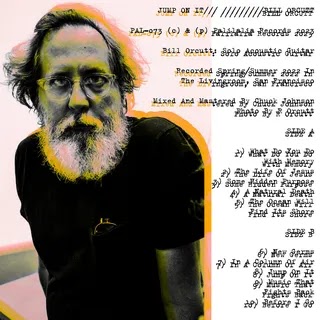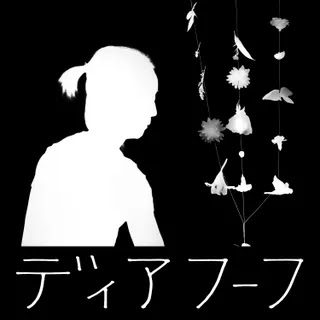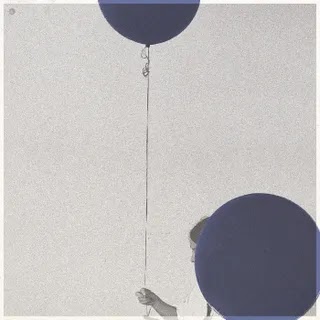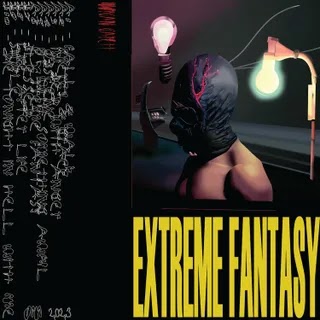Clearing the lo-fi haze of her previous work, the Los Angeles-based songwriter’s third album reveals astral Americana hymns that hover somewhere between the dirt and the stars.
Though she tends to sing softly, Eve Adams has never been one to mince words. On her first two records, the Oklahoma native sounded like a natural-born torch singer cocooned in a cloud of smoke, her straight-from-the-heart serenades wilfully corrupted by all manner of lo-fi abstraction. Still, the album titles—2017’s In Hell and 2019’s Candy Colored Doom—provided a crystal-clear indication of where her head was at, and when her words did occasionally cut through the textural haze, they were liable to leave scars. “Loving you is driving me mad/Just like murder/Like a good homicide,” she sang on her debut’s “Good Homicide,” before blithely admitting how desire so often leads to disappointment: “We got married at 23/He left the next year/And I felt nothing.”
Adams’ third album bears a more oblique title than its predecessors, but its inspiration is no less fraught. Metal Bird is the product of a tumultuous period beginning in 2018, when Adams uprooted herself from her homebase in Montreal and relocated to Los Angeles to be with family in the wake of a tragedy, while also traveling to Vancouver to convene with producer Bryce Cloghesy (a.k.a. avant-pop soundscaper Military Genius, and a member of art-punk collective Crack Cloud). Throughout that city-hopping experience, the airplane—the proverbial “metal bird”—came to represent a lot of different things to Adams: a link to familial obligations in a time of sorrow, a getaway vehicle transporting her the studio sanctuary where she could process that grief, and an aerial waystation where she could feel at home at a time when the concept seemed undefined.
Accordingly, Metal Bird feels blissfully unmoored from any sense of time and space, its astral Americana hymns hovering somewhere between the dirt and the stars, between a bygone golden age and our tense present, between raw intimacy and dreamlike splendor. It marks the moment when Adams boldly liberates herself from the off-the-cuff, obfuscating qualities of her previous work to deliver her words with radiant, broadcast-worthy clarity. But while Metal Bird is deceptively spare—only three of its 10 songs feature any sort of percussion—it retains the artful consideration of her earlier recordings, albeit in radically different form. In lieu of her past dream-pop reveries, bedroom beats, and musique-concrète drones, Adams pits her songs against a distant skyline filled in with exquisite strings, psychedelic twang, and subtle saxophone shading: the weightless waltz “You’re Not Wrong” conjures the floating 1940s fantasias of Mercury Rev circa Deserter’s Songs, while the title track cradles its electric psych-folk finger-picking in a hypnotic organ hum like a stripped-down busker version of Spiritualized.
Metal Bird is a nocturnal album, and the further you go, the darker it gets. On the chilling “Woman on Your Mind,” Adams gives voice to the Other Woman who’s no longer content with her secondary status, and is practically hoping her lover’s wife discovers the scent of her cigarettes on his clothes: “Did I say that the smoke will come right out?” she taunts. “We can close the blinds as tight as you like, but the neighbors already know.” For the most part, however, Adams isn’t engaging in dramatic dark-night-of-the-soul reckoning so much as savoring the dead-of-night stillness to reclaim some peace of mind. Over the circular refrain of “Butterflies,” she stretches her syllables out in a series of extended sighs, yielding an all-verse, no-chorus confessional that’s part breakup song, part meditative breathing exercise. By contrast, “Blues Look the Same” is all tough-love therapy, a matter-of-fact lament about lost innocence and cruel twists of fate rendered in sepia-toned Mazzy Star guitar slides.
But with the closing “My Only Dream,” Adams arrives at something resembling inner harmony. Atop cinematic strings, she dispenses a stream of Kurt Vile-style zen philosophies: “It ain’t nothing like what you been watching on the movie screen, and it ain’t free, and you ain’t going to find it on late-night TV,” she confides, before adding, “It’s not a word that I’ve ever heard, it’s my only dream.” She never reveals what that “it” is exactly, but the message is clear enough: happiness can be yours too, if you let go of your traditional conceptions of it.
















0 comments:
Post a Comment